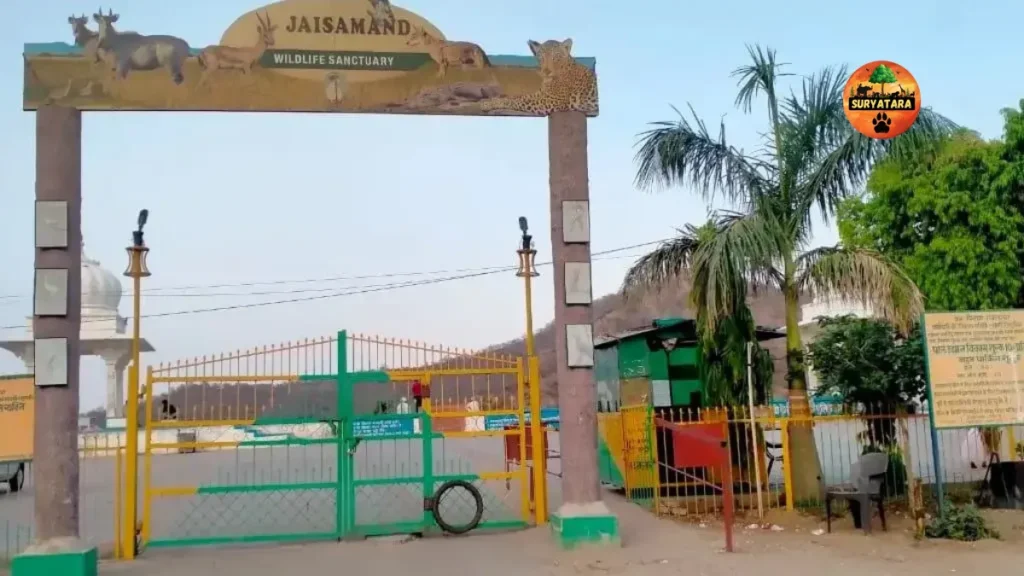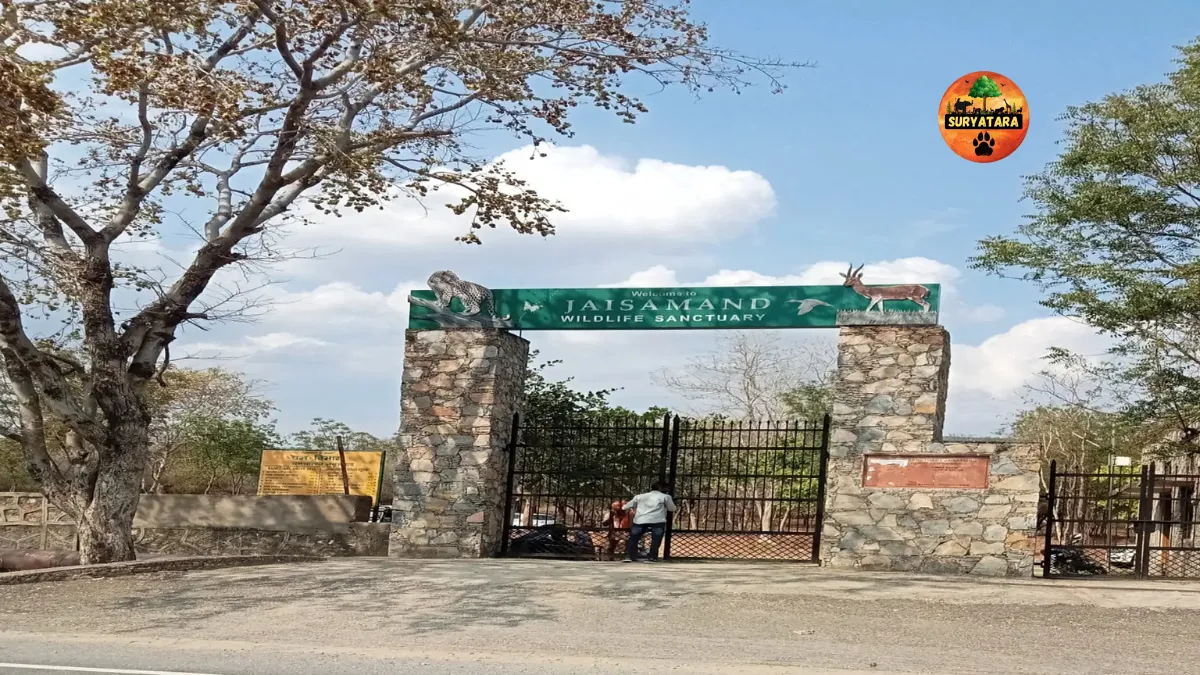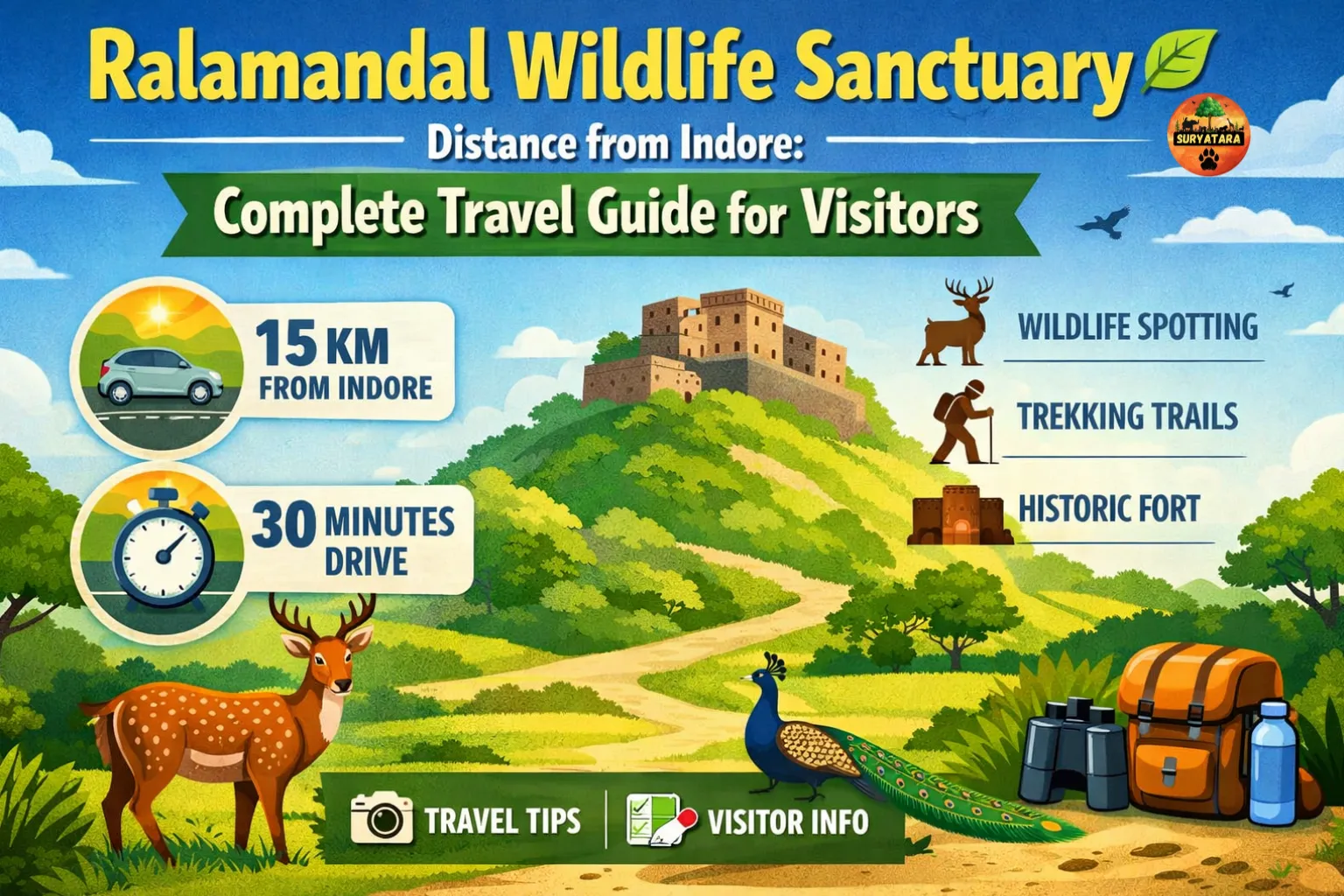Jaisamand Wildlife Sanctuary is one of Rajasthan’s hidden natural gems that offers an unforgettable experience for wildlife enthusiasts and nature lovers. Located near the serene Jaisamand Lake, this sanctuary is not just a haven for diverse flora and fauna, but also a peaceful retreat from the hustle of city life. Whether you are a passionate birdwatcher, a photographer, or someone seeking a tranquil escape into nature, Jaisamand Wildlife Sanctuary delivers it all.

An Overview of Jaisamand Wildlife Sanctuary
Situated about 50 kilometers from Udaipur, the sanctuary spreads across an area of nearly 160 square kilometers. It surrounds the second-largest artificial lake in Asia—Jaisamand Lake, also known as Dhebar Lake—adding to the scenic beauty and ecological richness of the region.
Established in 1957, the sanctuary has played a crucial role in the conservation of Rajasthan’s biodiversity. Its ecosystem is a mix of dry deciduous forest, grassland patches, and aquatic habitats, creating a diverse environment for several species of mammals, birds, reptiles, and fish.

Key Highlights of Jaisamand Wildlife Sanctuary
Here’s a quick summary of important details for planning your visit:
| Feature | Details |
|---|---|
| Location | Near Jaisamand Lake, Udaipur district, Rajasthan |
| Established | 1957 |
| Total Area | Approximately 160 sq. km |
| Best Time to Visit | November to March |
| Main Attractions | Leopards, crocodiles, migratory birds |
| Nearest City | Udaipur (approx. 50 km away) |
| Entry Permit Required? | Yes, from the Forest Department |
| Ideal Duration of Visit | 1–2 days |
Rich Biodiversity of Jaisamand Wildlife Sanctuary
Jaisamand Wildlife Sanctuary is home to a fascinating variety of wildlife. The most commonly sighted animals include:
- Leopards – Majestic and elusive, often spotted in the early morning.
- Hyenas and Jackals – Often heard howling in the evenings.
- Sloth Bears and Jungle Cats – Seen wandering through the forest trails.
- Crocodiles – Found basking around the lake, especially during the winter.
- Chinkara (Indian Gazelle) – Graceful and usually found in open grassy areas.
Birdwatchers are in for a treat here, especially during winter when the lake attracts migratory species like herons, storks, flamingos, and spoonbills. The sanctuary hosts more than 250 species of birds, making it one of the best birding spots in southern Rajasthan.
Flora: The Green Canvas of the Sanctuary
The landscape is dominated by dry deciduous trees like dhok, salar, bamboo, and khair, which provide natural shelter and food for wildlife. During monsoon, the region turns lush green, attracting butterflies and blooming native wildflowers.
How to Reach Jaisamand Wildlife Sanctuary
- By Road: Easily accessible via road from Udaipur. Regular buses and taxis are available.
- By Rail: The nearest railway station is Udaipur City.
- By Air: Maharana Pratap Airport in Udaipur is the closest airport, about 75 km from the sanctuary.
The sanctuary’s location makes it a convenient one-day or weekend trip from Udaipur.
Things to Do at Jaisamand Wildlife Sanctuary
1. Wildlife Safari
Permitted guided jeep safaris offer a chance to explore the inner zones of the sanctuary. Early mornings and late afternoons are ideal for spotting animals.
2. Birdwatching
Carry your binoculars and a good camera—the sanctuary is a paradise for bird lovers.
3. Boat Ride on Jaisamand Lake
Don’t miss a peaceful boat ride on the sparkling lake, with panoramic views of surrounding hills and the island in the center.
4. Photography
The light, landscape, and wildlife create perfect conditions for nature and landscape photography.
5. Picnicking and Trekking
Some areas within and around the sanctuary are ideal for short treks and relaxing picnics.
Travel Tips for Visiting Jaisamand Wildlife Sanctuary
- Start Early: Wildlife is more active during the early hours.
- Stay Silent: Avoid loud noises to improve your chances of sightings.
- Respect the Rules: Do not litter or disturb animals.
- Hire a Guide: Local guides know the best spots and stories of the region.
- Pack Light: Carry essentials like water, sunscreen, binoculars, and snacks.
Nearby Attractions Worth Exploring
After your visit to Jaisamand Wildlife Sanctuary, you can also explore:
- Jaisamand Lake – A picturesque and peaceful spot for relaxation.
- Roothi Rani Ka Mahal – A historic palace located on one of the lake islands.
- Dhebar Dam – Built in 1685, it is one of the oldest and largest in India.
Also read: Kumbhalgarh Wildlife Sanctuary: A Complete Guide for Nature Lovers and Adventure Seekers
Why Jaisamand Wildlife Sanctuary Should Be On Your Travel List
Unlike heavily commercialized parks, Jaisamand Wildlife Sanctuary retains a raw, untouched charm that allows visitors to connect deeply with nature. Its rich biodiversity, combined with the tranquility of the lake, offers a balanced mix of adventure and relaxation. Whether you are planning a solo nature trip, a family getaway, or a romantic escape, this destination promises memories that last.
Also read: Purna Wildlife Sanctuary: Nature’s Untouched Paradise in the Western Ghats
Conclusion
Jaisamand Wildlife Sanctuary is not just a wildlife destination—it is an experience that immerses you in the true beauty of Rajasthan’s natural heritage. From thrilling animal encounters to quiet lakeside moments, it offers something for every kind of traveler. So, the next time you’re in or around Udaipur, make sure to add this hidden gem to your itinerary. Nature is calling—you just have to answer.










